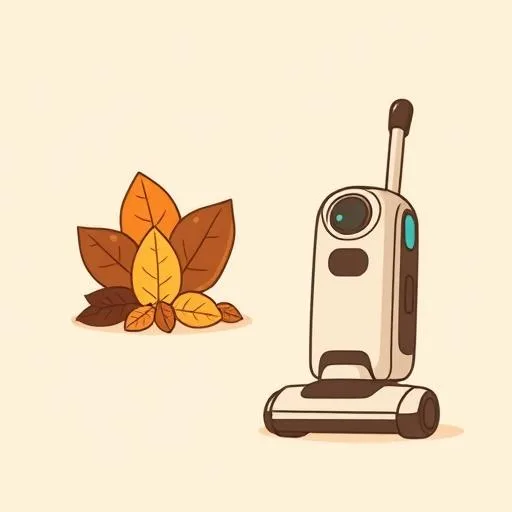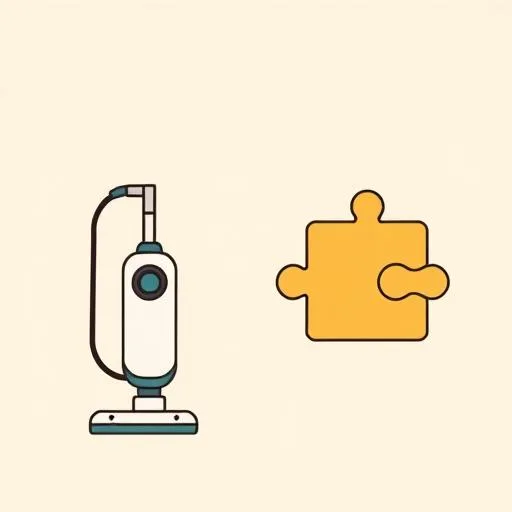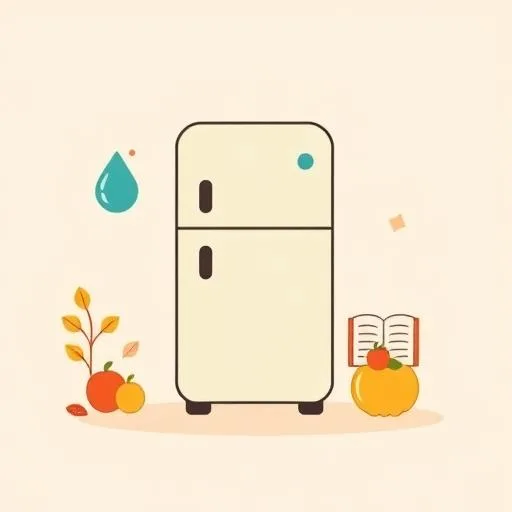
Did you catch the buzz coming out of IFA 2025 in Berlin? It’s not just flashy tech—it’s genuinely exciting stuff! Robot vacuums that can climb stairs, phones like the Samsung Galaxy Z Fold 7 that bend like magic, and fridges so smart they probably remember your milk better than you do. It all sounds like something straight out of a sci-fi show. This morning, while walking through the park with sunlight slipping through the trees, my daughter was stacking leaves, trying to balance them just right. Watching her, I felt this moment of clarity. There we were—completely in the moment, no screen in sight—and yet we’re stepping into a future where incredible tech can actually make that kind of time more available, not less.
More Than Just Clean Floors: The Gift of Reclaimed Time

Let’s talk about robot vacuums that can climb stairs—like the ones from Roborock, for instance. It’s easy to think of them as cool gadgets, but think about what they really offer. Every time I don’t have to lug the vacuum up the stairs is a moment I get back—a moment where I can engage with my daughter instead. Maybe it’s helping her color, or sitting on the floor while she tells me about her made-up adventures. It’s tiring rushing around the house, and honestly, I’d rather spend that time just seeing the world through her eyes for a bit.
These aren’t just cleaning tools—they’re giving us something more valuable: breathing room in a busy day. Time matters. That’s something no smart home device can replace. The way these gadgets support our routine, not disrupt it, is actually brilliant. It’s not about making life automated; it’s about making it a bit more *us*.
When Your Fridge Is Smarter Than You: Fostering Connection in a Connected Home

Then there are the smart fridges—ones that track contents, suggest recipes, and *yes*, remind you to drink water. I know, I know. It sounds a bit over the top. But in our home, where dinner prep often means juggling a million tiny things, imagine what it would mean to have one less mental task to carry? That’s where the real value kicks in—not just convenience, but space. Mental space. Time to connect, to plan, to actually enjoy meal prep, instead of dreading it.
Instead of worrying about machines taking over, we can reframe it. These tools help life flow smoother. The trick is to make sure we’re the ones steering the ship. My little one loves “grocery chats”—we pretend the fridge is a chef and come up with meals together. These small moments turn a formerly stressful chore into a creative game.
Folding Screens and AI Glasses: A New Playground for Curiosity

The personal gadgets coming out of IFA—like Samsung’s Galaxy Z Fold 7 and emerging AI glasses—really excite me. Not because of the tech itself, but because of how it opens the door to exploration with our kids. When we tried out a foldable phone at the local café, we loaded up a podcast in Spanish and she sketched what she thought the story was about. I didn’t even realize how absorbed we’d become—we were using tech not just to consume, but to create and connect. That’s where AI in education really comes alive—in our hands, together.
AI glasses that translate on the fly or smart notepads from Anker inspire curiosity. These gadgets aren’t just shiny objects—they’re tools that can amplify learning, travel experiences, and storytelling sessions. They help us explore the world without losing sight of each other.
The Real Upgrade: Nurturing What a Robot Can’t Replace

When you have a robot lawn mower doing its thing, or a fridge keeping your drinks cold with minimal effort, the focus shifts elsewhere. Honestly, I used to feel a bit uneasy about handing over these tasks to machines. But then again, when my daughter scraped her knee last week, no robot could’ve done what I did—comfort her, give her a hug, and remind her that it’s okay to be brave even when things sting.
These moments, these skills—empathy, resilience, imagination—can’t be automated. That’s why as much as I love the efficiency of smart tech, my priority is to use it to make space for the things only we can offer. We’ll use those extra few minutes to play, to talk, to explore what makes her laugh. That’s the upgrade no tech company can offer us—and it’s also the thing that will anchor her, no matter how wild the world becomes.
Looking at all these innovations, I don’t feel worried—I feel empowered. Because now, we can make time. We can ask better questions. We can create more moments that matter. The future is not just screens and robots—it’s us, growing together, with more time to be human.
Source: The Best of IFA 2025: Flagships, Foldables, and Fancy Fridges That Blew Us Away, PCMag, 2025/09/05
